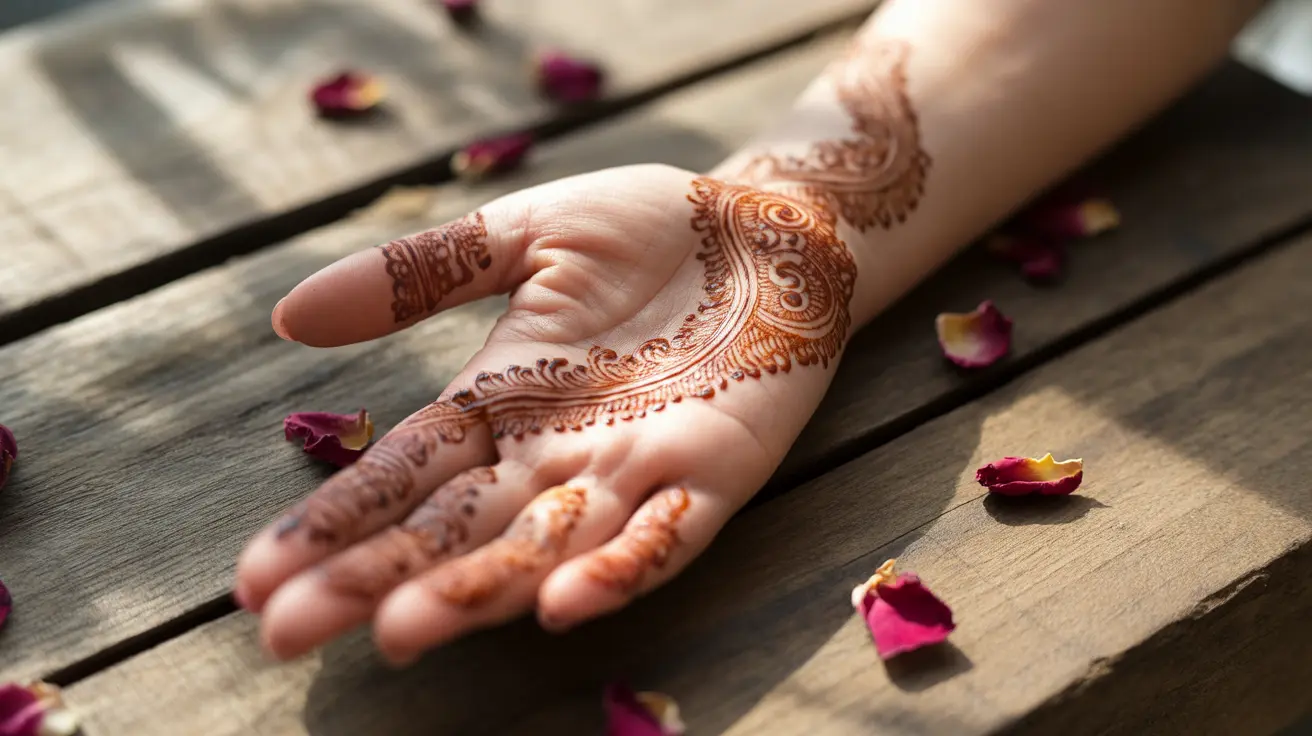Henna body art has been cherished for centuries as a beautiful form of temporary skin decoration. Whether you're considering getting your first henna design or you're a seasoned enthusiast, understanding how long henna lasts and how to care for it properly is essential for the best experience. This comprehensive guide will explore the factors affecting henna's longevity and provide expert tips for maintaining your design.
Understanding Henna's Natural Timeline
Natural henna typically follows a predictable staining pattern, though individual results can vary. When first applied, the paste needs 4-6 hours to dry and begin releasing its dye. The initial color develops over 24-48 hours, starting orange and deepening to a rich reddish-brown.
Most henna designs last between 1-3 weeks on average, with proper care and depending on various factors. The stain gradually fades as your skin naturally exfoliates.
Factors Affecting Henna Duration
Skin Type and Location
Different areas of your body retain henna stains for varying lengths of time. Thick-skinned areas like palms and feet typically hold the stain longest, often up to three weeks. Areas with thinner skin or frequent washing, such as the back of hands, may fade more quickly.
Quality and Application
The quality of henna paste and application technique significantly impact longevity. Pure, fresh henna paste applied correctly will typically last longer than pre-made cones or lower-quality products. The paste should remain on the skin for at least 4-6 hours for optimal staining.
Maximizing Henna Longevity
Immediate Aftercare
The first 24-48 hours after application are crucial for developing a deep, long-lasting stain. Keep the area warm and moist by applying a mixture of lemon juice and sugar after the paste falls off naturally. Avoid water contact during this period.
Long-term Maintenance
To extend your henna design's life:
- Avoid chlorinated water and harsh soaps
- Apply natural oils like coconut or olive oil
- Minimize exposure to exfoliating products
- Protect the area from excessive sweating during initial development
Safe Removal Methods
While henna is designed to fade naturally, there are gentle ways to speed up the process if needed:
- Regular swimming in chlorinated pools
- Gentle exfoliation after the first week
- Using oil-based cleansers
- Applying a paste of baking soda and lemon juice
Safety Considerations
Natural henna is generally safe for most people. However, avoid black henna containing PPD (para-phenylenediamine), which can cause severe allergic reactions. Always perform a patch test 24 hours before full application, especially if you have sensitive skin.
Frequently Asked Questions
How long does henna typically last on skin and what factors affect its durability?
Henna typically lasts 1-3 weeks on the skin. Durability depends on factors including skin type, location of application, quality of henna paste, and aftercare practices. Areas with thicker skin retain the stain longer.
What are the best ways to remove henna stains quickly and safely from the skin?
While natural fading is safest, you can gently accelerate the process using chlorinated water, mild exfoliation after the first week, or a mixture of baking soda and lemon juice. Avoid harsh chemicals that could irritate your skin.
How should I care for my henna design after application to make it last longer?
Keep the area warm and moist during the first 48 hours, apply a lemon juice/sugar mixture after paste removal, avoid water contact initially, and use natural oils for maintenance. Avoid harsh soaps and excessive scrubbing.
Can henna cause allergic reactions or skin irritation, and how can I prevent them?
Natural henna rarely causes reactions, but black henna containing PPD can cause severe allergic responses. Always do a patch test first and use only pure, natural henna from reputable sources.
Does the location on the body affect how long henna stains last?
Yes, location significantly affects duration. Palms and feet, having thicker skin, can retain stains for up to three weeks. Areas with thinner skin or frequent washing will fade faster, typically lasting 1-2 weeks.




